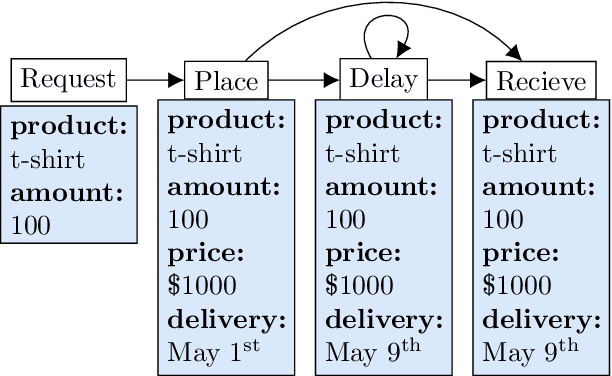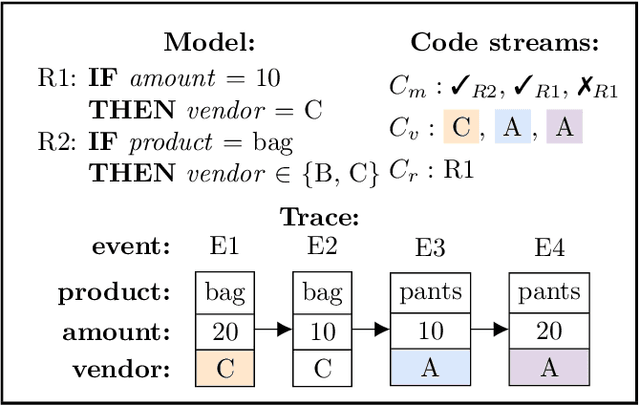Data is Moody: Discovering Data Modification Rules from Process Event Logs
Paper and Code
Dec 22, 2023



Although event logs are a powerful source to gain insight about the behavior of the underlying business process, existing work primarily focuses on finding patterns in the activity sequences of an event log, while ignoring event attribute data. Event attribute data has mostly been used to predict event occurrences and process outcome, but the state of the art neglects to mine succinct and interpretable rules how event attribute data changes during process execution. Subgroup discovery and rule-based classification approaches lack the ability to capture the sequential dependencies present in event logs, and thus lead to unsatisfactory results with limited insight into the process behavior. Given an event log, we are interested in finding accurate yet succinct and interpretable if-then rules how the process modifies data. We formalize the problem in terms of the Minimum Description Length (MDL) principle, by which we choose the model with the best lossless description of the data. Additionally, we propose the greedy Moody algorithm to efficiently search for rules. By extensive experiments on both synthetic and real-world data, we show Moody indeed finds compact and interpretable rules, needs little data for accurate discovery, and is robust to noise.
 Add to Chrome
Add to Chrome Add to Firefox
Add to Firefox Add to Edge
Add to Edge